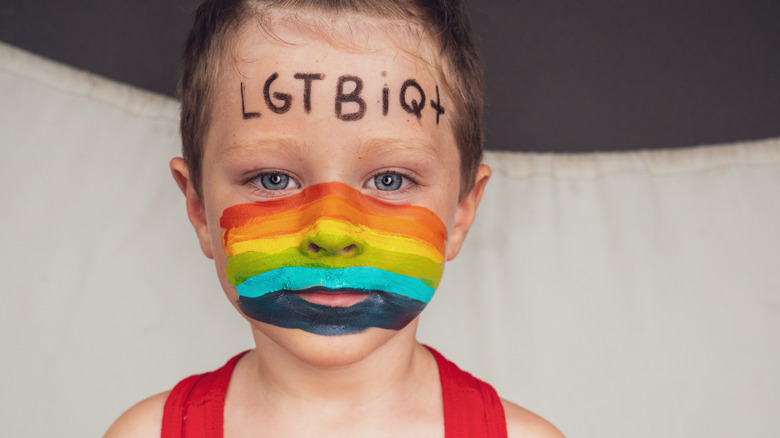What Is Gender-Affirming Healthcare And Why Are Experts Prioritizing It?
Gender-affirming healthcare has become buzzworthy in the news lately, especially in light of Florida's "Don't Say Gay" bill that has been passed into law and will go into effect later this year. With so much attention on the topic, it's important to know what gender-affirming healthcare is and why experts say it's a critical component of healthcare.
Sometimes people identify with a gender that doesn't align with the sex they were assigned at birth (via Medical News Today). Gender-affirming healthcare is a multidisciplinary approach to treat the psychological, social, and medical needs of these individuals to affirm their gender identity. It differs depending on a person's age, situation, and condition, and despite what you may hear in the news, it doesn't always mean surgery or hormone therapy.
There are many ways to affirm someone's gender, including using their preferred pronouns and calling them by the correct name. Gender-affirming healthcare also means mental health support, family support, education, and access to healthcare. And, naturally, this affects an individual's overall health in more ways than one.
Gender-affirming healthcare is life-saving
As early as age two, children will become aware of their gender identity, and by age five, they'll be aware of gender-specific behaviors in others, according to the U.K.'s National Health Service (NHS). While there are many ways to provide support, it's worth noting that gender-affirming medical treatments are not prescribed to prepubescent children (via Medical News Today).
Supporting a youth's gender identity is crucial for their mental health, as transgender people are two to three times more likely to suffer from depression and anxiety (via Medical News Today). According to a 2020 study published in Pediatrics, adults who were able to receive puberty blockers (which are reversible) were 70% less likely to attempt suicide. A 2019 study published in the Journal of Adolescent Health found that of the 47 transgender teens surveyed, 21 suffered from suicidal tendencies. But once they began hormone therapy, that number was reduced to just six.
The American Academy of Pediatrics (AAP) endorses gender-affirming treatment and has spoken out about bills that harm transgender youth. Said AAP President Dr. Lee Savio Beers, "The American Academy of Pediatrics recommends that youth who identify as transgender have access to comprehensive, gender-affirming, and developmentally appropriate health care that is provided in a safe and inclusive clinical space." For some, it could mean life or death.


